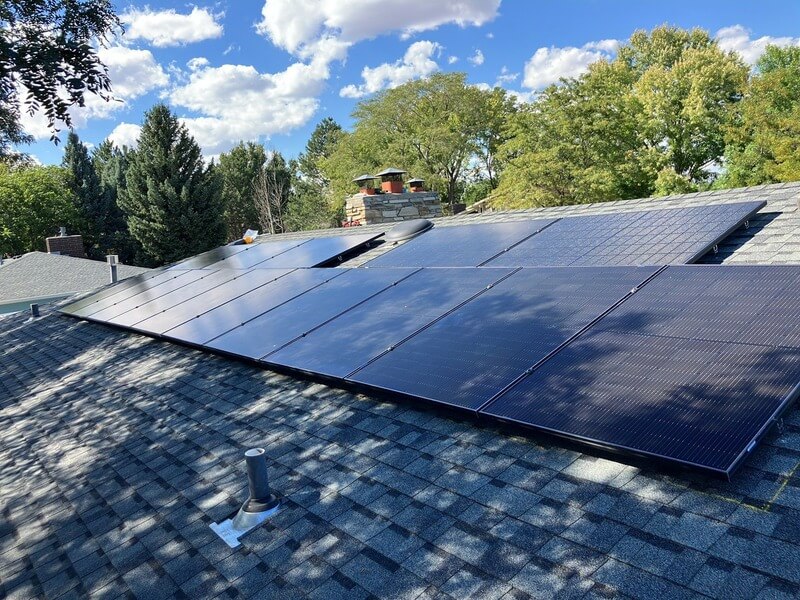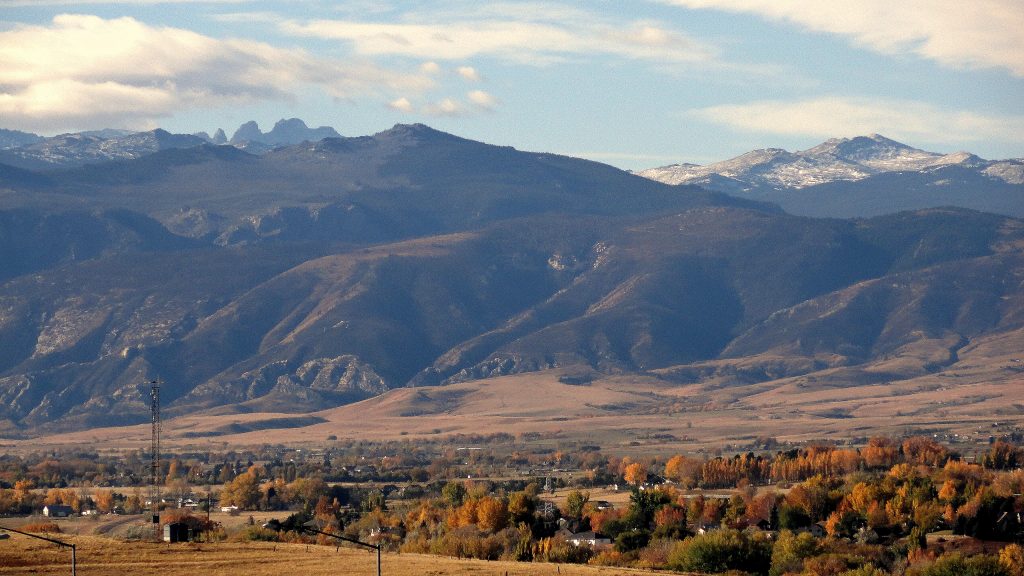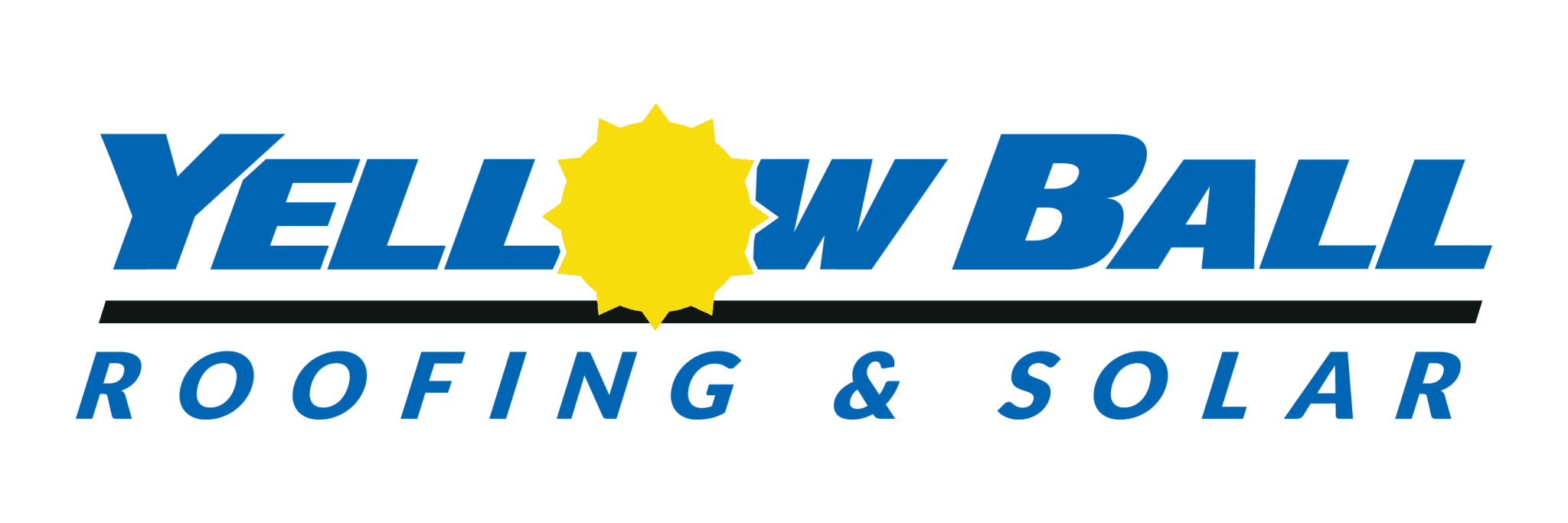Solar Installer in Wyoming
LOWEST PRICE GUARANTEE
FOR YOUR SUN POWERED
SOLAR ELECTRICITY SYSTEM
All work performed by YellowBall
employees for better quality control
Zero Money Out of Pocket Your First Year of Solar is Free
No solar or electric bill payment for 1 full year
Zero Money Out of Pocket Your First Year of Solar is Free
Introduction to Solar Energy
Solar energy represents a pivotal shift towards renewable energy sources, harnessing the sun’s power for electricity generation. The basics of solar energy revolve around capturing sunlight using photovoltaic (PV) panels, which convert the sun’s rays into electrical energy. This process is both clean and efficient, offering a sustainable alternative to fossil fuel-based energy sources.
The benefits of switching to solar power are manifold. Economically, it reduces electricity bills over time and increases energy independence. Environmentally, it significantly reduces carbon footprint, contributing to a reduction in greenhouse gas emissions. For homeowners and businesses, solar installations can increase property values and provide a reliable, long-term energy solution.
In the context of Wyoming, solar energy is increasingly becoming a viable and attractive option. Wyoming’s geographical location offers a considerable amount of sunlight, making it well-suited for solar power generation. The state’s commitment to renewable energy, evident through various incentives and policies, further encourages the adoption of solar technology. The cold but sunny weather in Wyoming is particularly beneficial for solar panels, as they operate more efficiently in cooler temperatures, maximizing energy generation in the region’s climate. Furthermore, the growing awareness and concern for environmental sustainability among Wyomingites are driving the adoption of solar energy systems, integrating them into the state’s energy mix.

Grid-Tied vs. Off-Grid Systems in Wyoming
Advantages and Limitations of Each System
- Grid-Tied Systems:
- Advantages:
- Reliability: Remain connected to the utility grid, ensuring continuous power supply even when solar production is low.
- Net Metering: Ability to sell excess energy back to the grid, potentially reducing or offsetting electricity bills.
- Lower Initial Cost: Typically less expensive than off-grid systems since they don’t require battery storage.
- Limitations:
- Grid Dependence: Reliant on the utility grid; during power outages, the system usually shuts down for safety reasons.
- Utility Costs and Policies: Subject to utility rates and policies, which can affect savings and ROI.
- Advantages:
- Off-Grid Systems:
- Advantages:
- Energy Independence: Completely independent from the utility grid, ideal for remote locations without grid access.
- No Utility Bills: Eliminates reliance on and expenses related to the utility company.
- Limitations:
- Higher Initial Investment: Requires batteries and additional equipment, making it more expensive upfront.
- Energy Management: Requires careful management of energy use, especially during periods of low sunlight.
- Storage Constraints: The capacity of batteries can limit the amount of usable energy.
- Advantages:
Energy Independence vs. Grid Reliability
The choice between grid-tied and off-grid systems often boils down to a preference for energy independence versus grid reliability. Grid-tied systems offer the security of a continuous power supply, with the grid acting as a backup when solar panels aren’t producing enough energy. This setup is practical for those in urban or suburban areas where grid access is readily available.
In contrast, off-grid systems provide complete energy independence, freeing the owner from utility costs and policies. This is particularly appealing to those in remote locations or individuals seeking self-sufficiency. However, the responsibility of managing and maintaining consistent power supply rests entirely on the system owner, requiring a more hands-on approach.
Hybrid Systems
Hybrid systems combine elements of both grid-tied and off-grid systems. They are connected to the grid but also include battery storage. This setup offers a balance between reliability and independence, providing backup power during outages and the ability to store excess solar energy. Hybrid systems can offer the best of both worlds, allowing homeowners to use stored solar power during peak times to avoid higher utility rates or to have a backup during grid outages while still enjoying the benefits of net metering.
Areas that we service in wyoming

Sheridan
Powell


Cody
Gilette

Harness the Power of the Sun
The shift to renewable energy is no longer a trend; it’s a necessity. Solar power offers a clean, reliable, and cost-effective solution for homeowners and businesses alike.
Why Choose Solar?
- Reduce your carbon footprint: Contribute to a healthier planet.
- Save money: Lower your electricity bills and increase your home’s value.
- Energy independence: Take control of your energy future.
- Resilience: Protect yourself from rising energy costs and power outages.
- Government incentives: Benefit from available tax credits and rebates.
YellowBall Roofing & Solar is your partner in harnessing the power of the sun. Our expert team will design and install a solar system tailored to your specific needs.
Ready to make the switch? Contact us today for a free consultation.
Let's Go Solar!
Top Rated Professionals With 50+ 5-Star Reviews
Trustindex verifies that the original source of the review is Google. I highly recommend using this company! Lisa was great! Walked me through the entire process from beginning to end so I always knew what to expect. Justice the owner was hands on at my house at critical times to make sure things went smoothly. His crews were very professional. And with the small unexpected hiccup that happened everyone was great at communicating the details until we were back on track! I’ll definitely use them again for any future solar or roofing project!Trustindex verifies that the original source of the review is Google. Wow! What an amazing company to work with! Lisa is a wonderful salesperson and works closely with you every step of the way. She made the whole experience easy and exciting. The whole Yellowball crew is professional, they communicated and when they were done with the installation everything was cleaned up. Lisa still came afterwards, with a magnet, to be sure nothing was missed. Get your solar from Yellowball!Trustindex verifies that the original source of the review is Google. Kaden was up front with everything if he did not know he would find it . I had a 4wheeler crash my head is scrambled he walked me through everything and helped with loanTrustindex verifies that the original source of the review is Google. If you're looking to get rid of your electric bill, add value to your home and help the environment - contact the team at YellowBall. Kaden, along with the entire install crew, were extremely professional throughout the entire process and were able to get the system installed in a month. They kept us up to date with what was happening with each portion of the install and made sure we were happy. This is a solid, local Montana company. Justice and his team are absolutely the way to go with your solar project and you won't be let down.Trustindex verifies that the original source of the review is Google. This team is proficient in their knowledge of their products, Has a great set of communication between each other and their customer, And ultimately seem like they enjoy what they do and teaching people about using solar. Highly recommend using YellowBall.Trustindex verifies that the original source of the review is Google. YellowBall Roofing & Solar is amazing! I stopped by their booth at the fair and got the download on the benefits of going solar from Cyrus. I did some research got a few quotes and YellowBall Roofing & Solar was the best option for system and financing. Cyrus answered all my questions and kept me informed on the time line and installation process. The install team was awesome. Friendly, fast, professional and clean no mess. It looks great, turned out better than my expectations. Definitely go solar with YellowBall.Trustindex verifies that the original source of the review is Google. Addition of solar panels was quick and easy. Totally recommend this team!Trustindex verifies that the original source of the review is Google. Keaton Lorenz. What can i start to say? SUPER professional and answered all my questions about solar. Am installing soon!Trustindex verifies that the original source of the review is Google. I would highly recommend this company to anyone looking for solar energy. All of people are very friendly and professional from the crew that put the panels on the house to the salesman. Cyrus are salesman has answered the phone ever time I have called and has answered all my questions.Trustindex verifies that the original source of the review is Google. Brittany was as delightful, helpful, tech savvy, responsible, knowledgeable and caring as the sunshine yellowball delivers.Verified by TrustindexTrustindex verified badge is the Universal Symbol of Trust. Only the greatest companies can get the verified badge who has a review score above 4.5, based on customer reviews over the past 12 months. Read more



